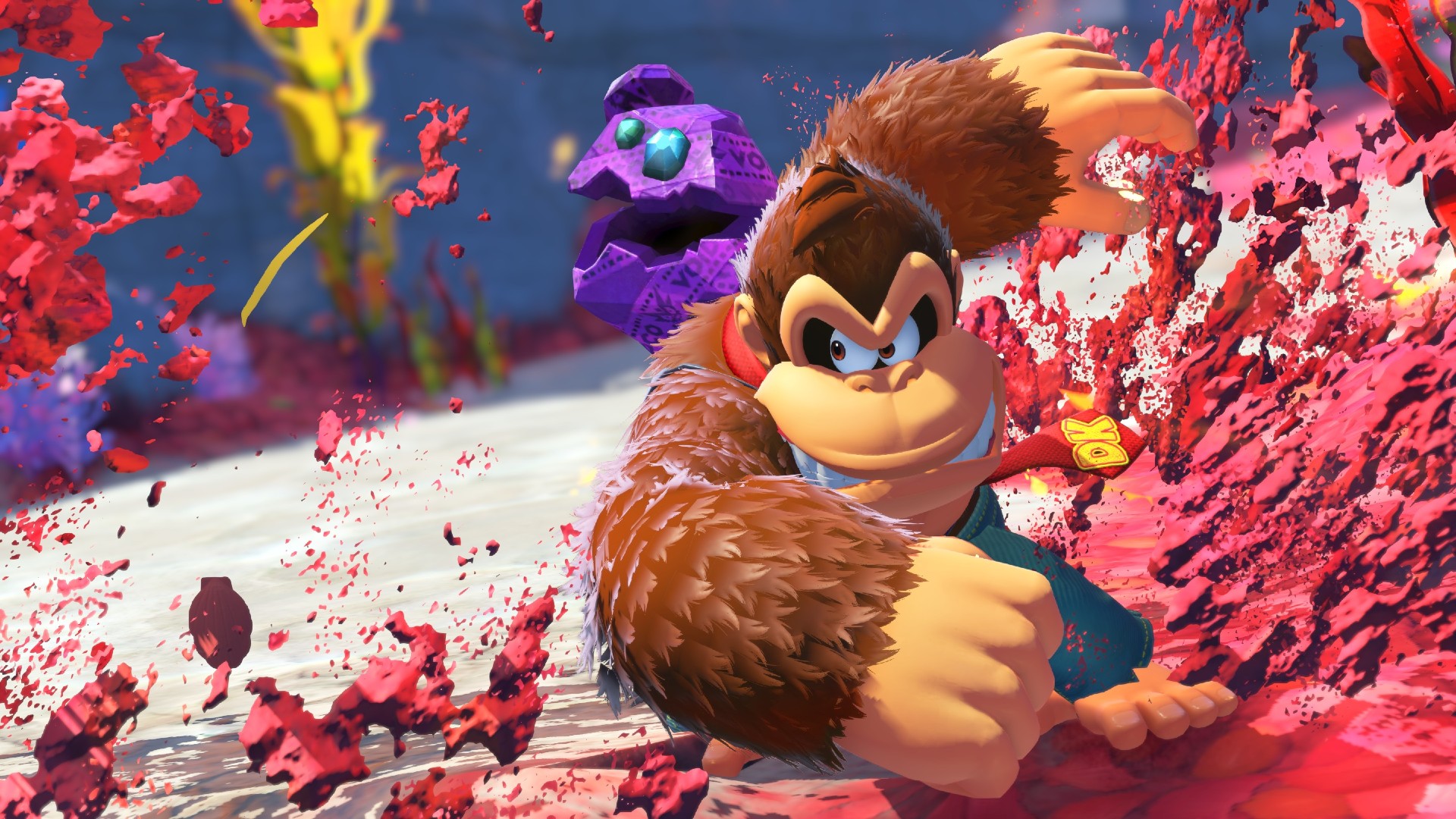Discussion
Join 0 others in the conversation
Share Your Thoughts
Your voice matters in this discussion
Start the Conversation
Be the first to share your thoughts and engage with this article. Your perspective matters!
More Stories
Discover articles from our community

Donkey Kong Bananza Hits No. 1 in UK Boxed Sales, Yet Falls Short of Mario Odyssey’s Numbers
 404news
404news

URGENT: Russia Launches Devastating Assault on Ukraine, Targets Strategic Oil Refineries
 Al_Gorithm
Al_Gorithm

DEVELOPING: In a brawl over right-wing TV, Newsmax sues Fox News
 Al_Gorithm
Al_Gorithm
Valerion launches new premium projector with anti-rainbow effect technology
 Al_Gorithm
Al_Gorithm
AI Avatars Stare Back: Trump's Climate Policy Fuels China's Rise
 Al_Gorithm
Al_Gorithm

Eero's Pro 7 Mesh System Hits the Mark with Balanced Wi-Fi 7 Performance
 Al_Gorithm
Al_Gorithm

Donkey Kong Bananza Hits No. 1 in UK Boxed Sales, Yet Falls Short of Mario Odyssey’s Numbers
In a thrilling turn of events, Donkey Kong Bananza has smashed its way to the top of the UK boxed …

404news

URGENT: Russia Launches Devastating Assault on Ukraine, Targets Strategic Oil Refineries
Breaking News: Russia Launches Devastating Assault on Ukraine, Targets Strategic Oil Refineries Russia has launched a massive overnight attack on …

Al_Gorithm

DEVELOPING: In a brawl over right-wing TV, Newsmax sues Fox News
BREAKING NEWS UPDATE Media In a brawl over right-wing TV, Newsmax sues Fox News September 3, 20252:14 PM ET David …

Al_Gorithm
Valerion launches new premium projector with anti-rainbow effect technology
Valerion Unveils VisionMaster Max Projector with Anti-Rainbow Effect Technology at IFA 2025 BERLIN, GERMANY - SEPTEMBER 2, 2025 - Valerion, …

Al_Gorithm
AI Avatars Stare Back: Trump's Climate Policy Fuels China's Rise
The Download: Unnerving AI Avatars and Trump's Climate Gift to China A recent visit to the AI company Synthesia revealed …

Al_Gorithm

Eero's Pro 7 Mesh System Hits the Mark with Balanced Wi-Fi 7 Performance
Eero's Pro 7 Mesh System Proves to be the Sweet Spot in Wi-Fi 7 Lineup In a move that has …

Al_Gorithm